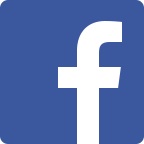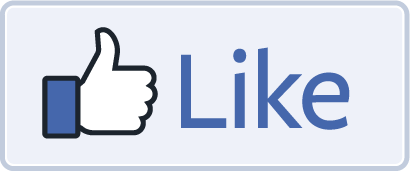
Source: www.facebookbrand.com.
The difficulties of rolling out Facebook's (FB 0.22%) platform across the developing world drew its fair share of news coverage in recent months, especially after Indian authorities delivered the company a setback in the Eastern Hemisphere, rejecting its Free Basics Internet platform in February.
But another of Facebook's efforts in the developing world has been chugging along like the old Orient Express – albeit quietly so. Facebook Lite, the social network's mobile app designed to operate efficiently on more data-restrictive 2G cellular networks, registered monthly active user No. 100 million last month.
That's a significant milestone for the company as it plays the long game in developing nations.
Faster than Facebook
Facebook Lite has staked the claim to being the fastest-growing version of the social network's platform, topping the 100 million monthly active user mark in less than nine months since its release, software engineer Gautam Roy said in a post on Facebook's corporate blog site.
In a nutshell, Facebook designed the Lite app so that most of the needed computing is done not by the phone, but on the server side of the connection. That allows the social network to deliver a Facebook experience while using a much smaller amount of data.
Because of that, it works well with low-powered devices and slower cellular connections that are prevalent in less developed areas of the globe. That's likely to make it an important piece of the ambitious long-range plans Facebook outlined on April 12.
Tiny app makes it easy
Now available in 150 countries, the app is most popular in Brazil, Indonesia, Mexico, the Philippines, and India, the country where Facebook suffered its well-publicized setback earlier this year.
One of the criticisms of Facebook's Free Basics program was that it's been promoted as an altruistic endeavor on the company's behalf, when it's more likely a long-term effort to extend its reach into the developing world so it can eventually reap the benefits through its advertising platform.
It's not an unfair criticism. Facebook is, after all, a pretty simple business, and efforts that lay the foundation for the expansion of that business are not easily disguised as something philanthropic.
Facebook Lite is not wrapped up in any camouflage. It was designed for countries like India, where the population is scattered across some 600,000 cities and smaller villages. Many of those smaller towns have only slow cellular connections available.
At 1MB, the app is only a tiny fraction of the size of the full 42MB Facebook app. A regular Facebook app could take a half-hour or more to download on a 2G connection, the company says. Even worse, downloads that large often fail. The Facebook Lite app can be downloaded in just a matter of seconds, even on these slow connections, the company says.

Big markets, big opportunity
Facebook estimates that some 1.6 billion people live in areas of the developing world that still don't offer at least 3G coverage, the minimum coverage for what we would consider high-speed broadband Internet service.
"Through our research in emerging markets and in seeing how people use our apps, we know that cost of data and overall data usage is extremely important to people," Roy wrote in his blog post.
One thing Facebook Lite is not is a great advertising platform -- at least not yet. The company has said that some ads are running on the version now, but it's clear that isn't the goal at this juncture. Growing the number of Facebook users throughout the developing world is. The 100 million Facebook Lite users still represent just a small amount of the company's roughly 1.6 billion total monthly active users worldwide.
But as fast-growing as it's been so far, it could eventually delver the social network a significant advertising opportunity. That's part of Facebook's long game. As of the end of 2016, people in North America and Europe made up about 39% of Facebook's daily active users and 34% of its monthly active users. But those regions were responsible for some 75% of Facebook 2016 revenue.
That means Facebook's runway for growth, in terms of revenue, appears far longer in the developing world than in developed markets such as the United States.
Products such as Facebook Lite are important pieces in Facebook's strategy to set itself up for the long taxi down that extended runway. It's also important because it shows that advances are being made on that important front even as it loses other battles, such as it did with Free Basics in India.
